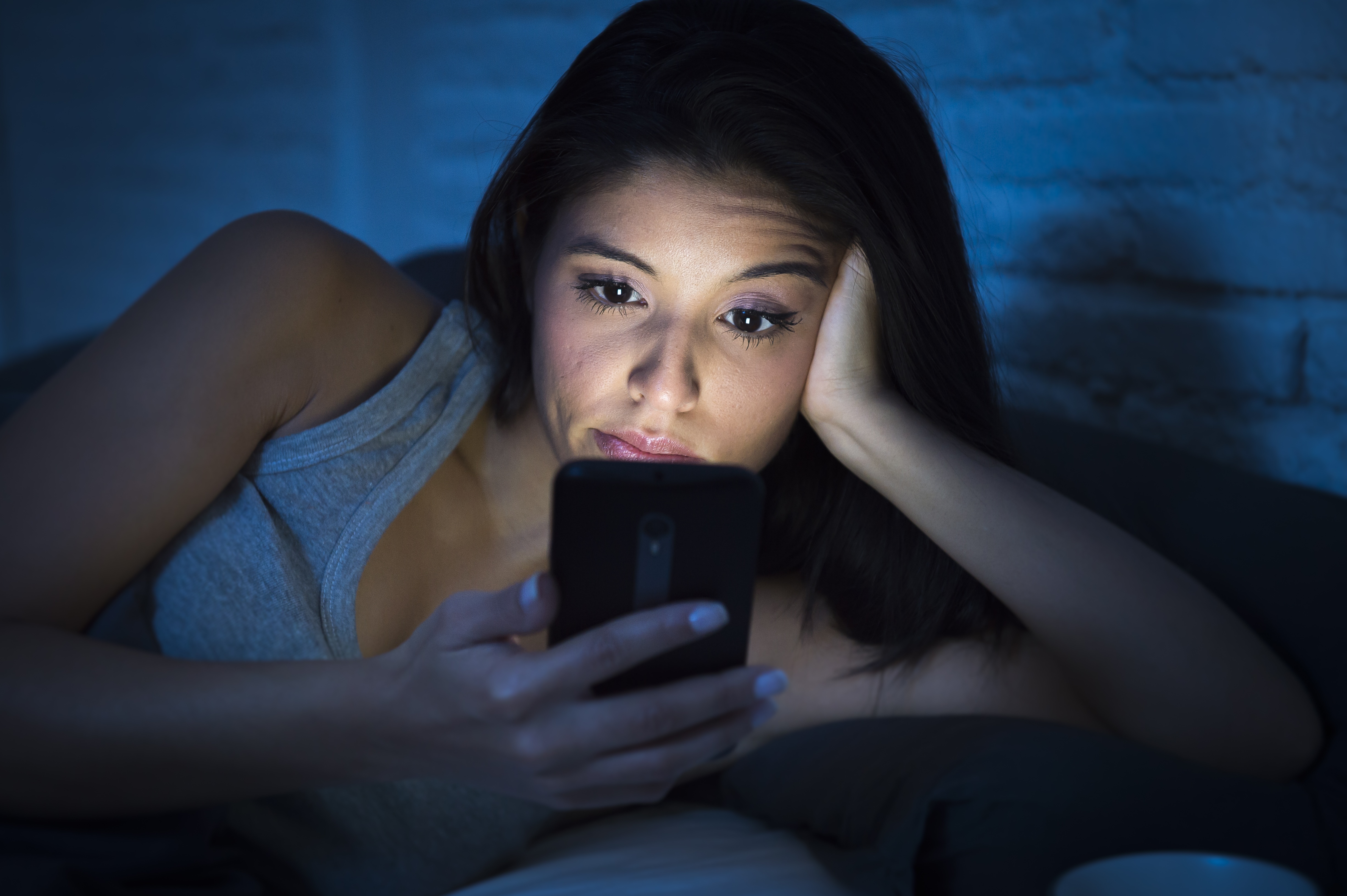It feels like your phone and your tablet seem to demand more and more of your attention. There's always one more email or text message to answer, one more post to share on Facebook, one more game to play. It's hard to put your devices down, even at bedtime.
Related Blog: 6 Tips to Help You Fall Asleep
And all of that screen time is having an adverse effect on your sleep.
The problem is not just staying up all night to finish binge-watching the latest Netflix show. Using your phone at night can actually disturb your natural sleep cycle. A 2015 study found that using a device before bed was linked to an increase in the likelihood of needing more than 60 minutes to fall asleep.
How Screen Time Affects Sleep
Why does screen time affect your sleep? Exposure to the short-wavelength light emitted by your devices, known as "blue light," tricks your brain into staying awake.
Blue Light Suppresses Melatonin
A critical part of the sleep/wake cycle is the production of melatonin, the hormone that causes you to fall asleep. Exposure to the blue light emitted from your devices represses melatonin, keeping you from drifting off. When you do fall asleep, it's likely to be less restful, and you may have a hard time staying asleep.
Your Device Keeps You Alert
As you watch videos, scroll through social media, or reply to incoming messages, your brain responds by increasing its production of cortisol, which is a stress hormone. Keeping your mind engaged keeps you awake and alert. Your mind needs time to relax and unwind before bed.
For the best sleep, experts recommend turning off your devices at least 30 minutes to an hour before you go to bed.
Tips for Better Sleep
Turning off your gadgets isn't the only way to improve your sleep. Here are some suggestions to help you sleep longer and better.
Stick to a Sleep Schedule
Try to wake up and go to sleep at the same time every day. Yes, even on weekends. Sticking to a set sleep schedule helps to regulate your body's internal clock, which makes it easier to fall asleep.
Exercise
Regular exercise helps you to sleep better. Take care not to exercise too late in the day, since doing so can keep you awake. Finish your vigorous workout about three or four hours before bedtime.
Avoid Naps During the Day
If you have trouble falling asleep, you should avoid taking naps, especially in the afternoons. Napping can make it more difficult to fall asleep at bedtime.
Create an Optimal Sleep Environment
Your sleep environment plays a big part in the quality of your rest. While the perfect conditions for sleep are different for every individual, sleep experts agree that the ideal sleep environment is:
A room temperature between 60° and 67°F is optimal for sleep, according to the National Sleep Foundation. Experiment until you find the temperature that makes you the most comfortable.
Dim the lights about an hour before bed to signal your brain that it's time to wind down. Use blackout shades to block any outside light and noise that can disturb your sleep. If your digital clock distracts you, turn it away from you when you go to bed.
If your sleep is interrupted by your neighbors' loud party or your partner's snoring, try wearing earplugs or using a white noise machine. Turn off the TV when you're trying to sleep, as the TV emits blue light and the sounds can also keep you awake.
Be sure that your pillows and mattress are supportive and comfortable.
A good night's sleep is important for your well-being. By avoiding screen time at night and creating an ideal sleep environment, you're sure to improve your sleep and your health.





